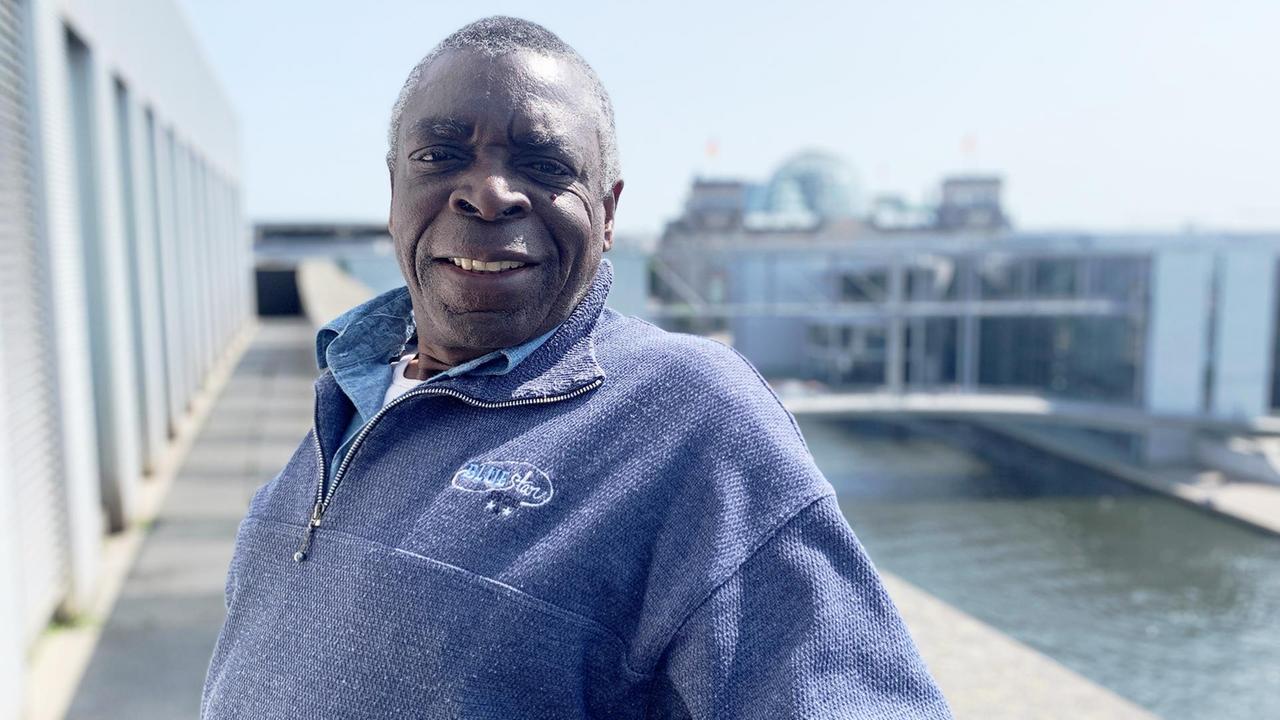David Macou was 19 when he came to the GDR from Mozambique as a contract worker in 1979. He was promised vocational training and money with which he wanted to build a future in Mozambique. Today he draws a bitter conclusion.
David Macou still remembers how young people came to his hometown of Chidenguele Gaza in Mozambique and raved about the GDR. It is a country with social security and equality. And you can make good money, they promised. That sounded good to the young man. His homeland was sinking into civil war, and the GDR seemed a good alternative.
Many young Mozambicans felt the same way as David. From 1979 until the end of the GDR in 1989, around 17,000 women and men came. They wanted to do vocational training and build a life in their homeland with the wages they earned.
What they didn't know: They were just puppets in an interstate horse trade between the GDR and Mozambique. The African country provided workers that the GDR urgently needed. In return, the GDR forgave Mozambique debts for arms and goods deliveries that the poor country would otherwise not have been able to pay.
Hard work and racism
However, David and the others affected initially didn't notice anything. David came to Cottbus to work in the brown coal mining industry. There in the Welzow opencast mine he learned to be a locksmith, became a master craftsman, and later learned to be a welder. The work was hard. David talks about twelve hours a day. He became a group leader and had responsibility.
But outside of the work environment, the mood was different. There was racism and hostility from the beginning, David remembers. “We always traveled in groups of four to six people. We were afraid alone.”
There was hardly any contact with the local population. The contract workers lived in dormitories. Nevertheless, they encountered prejudice and rejection everywhere. Only a few people were friendly; there were isolated friendships and sometimes romantic relationships with Germans.
Lonely in a foreign country
It was a hard life for the young Mozambicans, especially since they were not allowed to go home – not even to visit. When they entered the country, their passports were taken away. Return or vacation was only planned after four years. The only way to get consolation from home was by mail, but that took forever. David says that every time he sent a message to his family, he always had to wait two to three months for a response. He was very lonely.
David was still doing comparatively well. Others couldn't even get the training they were promised. Young women who dreamed of becoming nurses found themselves in the textile industry: physically difficult work on an assembly line. Many also ended up in agriculture. Contract workers were used wherever the work was hard and the GDR lacked workers. In addition to Mozambicans, people from Angola, Cuba and Vietnam were also deployed.
But unlike workers from other countries, Mozambicans were not paid their full wages. There was a basic amount of 350 GDR marks. The companies withdrew up to 60 percent of the rest; Money that the GDR offset with Mozambique as debt repayment. The workers were told that they would receive the missing wages in Mozambique when they returned.
Not welcome at home
But that only happened in the rarest of cases. The majority came away empty-handed. Worse still, the returnees were met with suspicion and contempt. They were considered shirkers because they had not fought in the Civil War. Despite some of them having good qualifications, they were unable to get any work in their homeland. Many lived and live in poverty.
David Macou is also affected by this. He was in the GDR and reunified Germany for twelve years and lived in Hoyerswerda until 1991. There he survived two neo-Nazi attacks on dormitories with contract workers. After the second attack he had to leave Germany, even though he now had a German girlfriend and a small daughter.
He would have loved to stay, he says today – especially since unemployment and poverty awaited him in Mozambique. To this day he makes a living as a self-employed locksmith and welder, but that's often not even enough to make a living, he complains. He now has a family in Mozambique, a wife and three children. He says that he had actually been working for such a future in the GDR. But now he has nothing.
Betrayed by two countries
David feels betrayed by both countries: by the GDR, which withheld his wages, and by Mozambique. In 1992, the Federal Republic paid 75 million German marks to the African country so that it could pass the money on to the contract workers. But that hardly ever happened. The millions seeped away in Mozambique's corrupt structures.
That's why David and many other former GDR contract workers have been protesting in Maputo every Wednesday for 30 years for their money to be paid out. There are 100 to over 1,000 people every time, reports David. They want to continue until they receive their outstanding wages or at least compensation for the injustice they have suffered. But they know that not much can be expected from Mozambique.
David Macou (center) is demanding compensation for himself and other former contract workers in the GDR.
Demands on Germany and Mozambique
Now they are hoping for Germany. But here too there is little movement on the matter. The Bundestag's Human Rights Committee looked into it last year, but little has happened since then. That's why the SED victims' representative of the Bundestag, Evelyn Zupke, and the German Institute for Human Rights, together with other supporters, published an appeal today in which they called for unbureaucratic compensation to the German Bundestag. They are calling for a corresponding resolution during this legislative period.
They argue that the Federal Republic cannot simply point to the government in Mozambique, which collected the money 30 years ago. The contract was not explicitly formulated in favor of the former contract workers. In addition, the reference to Mozambique is of no use to those affected. Many of them are poor, old and sick. Of the former 17,000 people, around 5,000 have already died. Germany has a responsibility towards the people. They had been exploited for years, but in turn had paid taxes and contributed to pension insurance. You are entitled to compensation.
David Macou thinks so too. He needs the money. But he also wants moral reparation. “I expect respect and recognition,” he says. And by the way, he would be happy about visa relief for former contract workers. This would make it easier for him to visit his daughter in Hoyerswerda. After all, he is now a grandfather and very proud of his little grandson.





